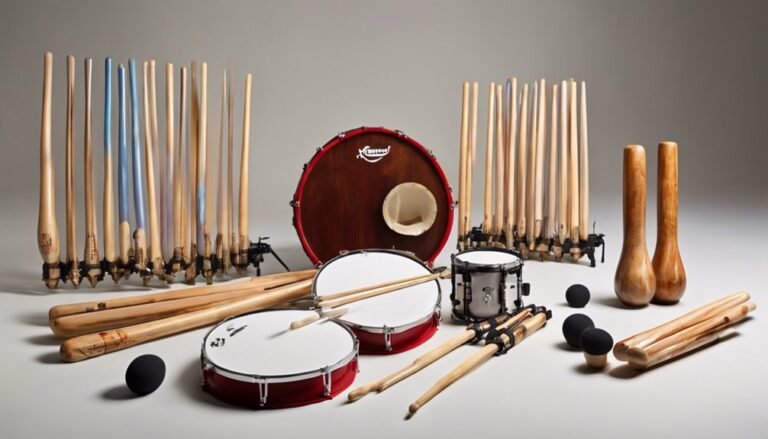Best Hooks for Hanging Field Radios and Communication Gear
When choosing hooks for hanging field radios and communication gear, opt for durable materials like stainless steel or heavy-duty nylon for longevity. Look for features like load capacity, weather resistance, and adjustable designs to guarantee easy access and stability. Securely install your hooks and regularly inspect them for wear or damage to maintain performance. With the right hooks, you can focus on your tasks without worrying about equipment failure. Learn more about specific hook types and installation tips.
Understanding the Importance of Quality Hooks
When you’re out in the field, having reliable hooks for your radios isn’t just a convenience—it’s essential. Quality hooks guarantee your communication gear stays secure, allowing you to focus on your tasks without worrying about equipment failure. When choosing hooks, pay attention to durability standards; they should withstand harsh weather conditions and rough handling. Look for materials like stainless steel or heavy-duty plastic that can endure the elements. Additionally, consider the weight capacity of the hooks. Ascertain they can support your radios and any additional gear without bending or breaking. By investing in high-quality hooks, you assure that your equipment remains accessible and functional, giving you the freedom to operate effectively in any environment.
Top Hook Types for Field Radios
Selecting the right hooks for hanging field radios is key to maintaining effective communication in demanding environments. First, consider stainless steel hooks known for their durability factors, resisting corrosion and wear over time. Another option is heavy-duty nylon hooks, which offer a lightweight alternative while maintaining decent weight capacity. If you need something versatile, look into adjustable hooks that can accommodate various radio sizes and weights. For high-stress situations, reinforced metal hooks provide the strongest support, ensuring your radio stays secure. Ultimately, the hook you choose should balance durability factors with appropriate weight capacity, allowing you to keep your communication gear accessible without compromising its integrity. Evaluate your specific needs for peak performance in the field.
Features to Consider When Choosing Hooks
While choosing hooks for hanging field radios, there are several key features to contemplate that can greatly impact functionality and reliability. First, consider the hook materials; durable options like stainless steel or reinforced plastic can withstand outdoor conditions. Second, evaluate the load capacity to guarantee your gear remains secure.
| Feature | Importance |
|---|---|
| Hook Materials | Impact resistance and longevity |
| Load Capacity | Prevents gear from falling |
| Design | Guarantees easy access and stability |
| Weather Resistance | Protects against rust and corrosion |
How to Properly Install and Use Hooks
To guarantee ideal performance and safety, understanding how to properly install and use hooks for hanging field radios is essential. Start with effective installation techniques: verify the hooks are securely anchored, using appropriate screws or bolts for your surface material. Next, consider hook placement; hang your radio at a reachable height for quick access while keeping it away from moisture and extreme temperatures. Avoid crowded areas to prevent accidental bumps. Additionally, double-check the weight capacity of your hooks to verify they can support the radio and any additional gear. By following these guidelines, you’ll maximize functionality while maintaining the integrity of your communication equipment, allowing you the freedom to operate effectively in the field.
Maintenance Tips for Longevity and Performance
Maintaining your field radios is essential for ensuring their longevity and ideal performance, especially in demanding environments. Regularly inspect your devices for any signs of wear or damage; proactive radio care can prevent costly repairs. Clean the exterior and connections with a soft cloth to avoid dirt buildup. Store your gear securely when not in use, utilizing hooks designed for communication gear to avoid impact damage. Protect your batteries by keeping them charged and storing them in a cool, dry place. Avoid exposing radios to extreme temperatures or moisture, as these factors can degrade performance. By following these maintenance tips, you’ll enhance your radios’ durability and reliability, ensuring you stay connected when it matters most.
References
- https://en.wikipedia.org/wiki/Field_radio
- https://www.nps.gov/articles/field-communication-gear.htm
- https://www.army.mil/article/187822/communication_in_the_field_essential_gear_for_soldiers
- https://www.military.com/join-armed-forces/field-gear.html
- https://www.acq.osd.mil/dodsc/about_dodsc.html
- https://www.ncbi.nlm.nih.gov/pmc/articles/PMC6366509/
- https://www.redcross.org/get-help/how-to-prepare-for-emergencies/emergency-communication.html







